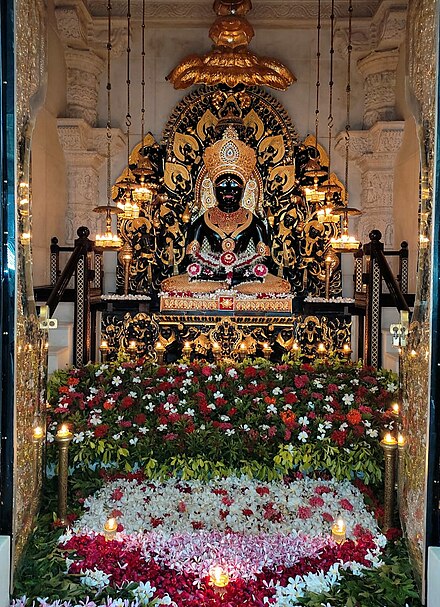Munisuvratanatha, also known as Munisuvrata, is the twentieth Tirthankara in Jainism. Tirthankaras are revered as enlightened spiritual teachers who guide followers towards spiritual liberation (moksha). Here are some key details about Munisuvratanatha:
Life and Significance:
Historical Context:
- Munisuvratanatha is believed to have lived during the third time cycle (Avasarpini) in Jain cosmology.
Parentage:
- He was born to King Sumitra Raja and Queen Padmavati Devi in Rajgir (modern-day Bihar, India). His birth was celebrated with auspicious signs and celestial events.
Symbol and Color:
- Munisuvratanatha’s symbol is the tortoise, which symbolizes steadfastness and detachment.
- His associated color is golden.
Enlightenment and Teachings:
- Munisuvratanatha attained Kevala Jnana (omniscience) after intense meditation and ascetic practices.
- As a Tirthankara, he revived and propagated Jain teachings, emphasizing principles such as non-violence (ahimsa), truth (satya), non-stealing (asteya), celibacy (brahmacharya), and non-possession (aparigraha).
Nirvana:
- Munisuvratanatha attained Nirvana at Sammed Shikharji, one of the most sacred pilgrimage sites for Jains.
Iconography:
- Munisuvratanatha is typically depicted in statues and paintings in the lotus position (padmasana) or standing meditation posture (kayotsarga).
- His images often include the emblem of a tortoise, which helps identify him among other Tirthankaras.
Worship and Festivals:
- Munisuvratanatha is worshipped by Jains, particularly during Mahavir Jayanti and other important Jain festivals.
- Devotees conduct rituals, prayers, and offerings in his honor at Jain temples.
Temples:
- Temples dedicated to Munisuvratanatha can be found across India, especially in regions with significant Jain communities. These temples serve as important centers for Jain worship and pilgrimage.
Philosophical Contributions:
- Munisuvratanatha’s teachings emphasize the path of non-violence, spiritual discipline, and liberation from worldly attachments.
- His life and teachings continue to inspire Jains in their spiritual journey towards enlightenment and ethical living.
Munisuvratanatha occupies a revered place in Jain tradition, embodying the ideals of compassion, wisdom, and spiritual attainment that guide followers on their path towards spiritual liberation.



